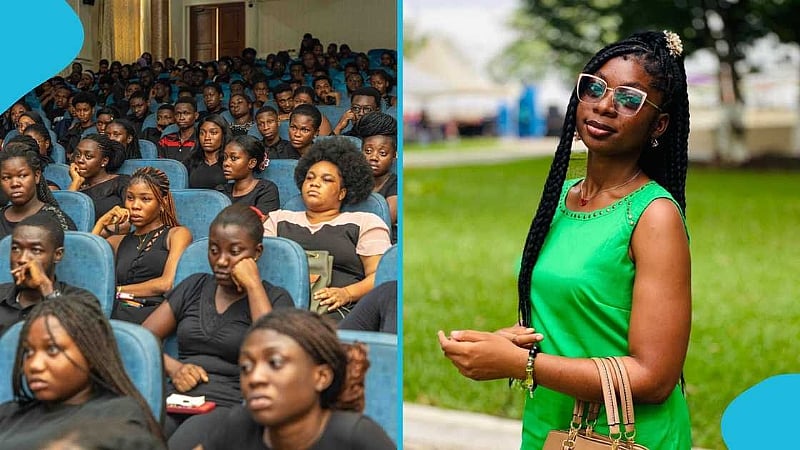Joana Deladem Yabani, a promising student of Kwame Nkrumah University of Science and Technology (KNUST), tragically lost her life on February 27, 2025, under circumstances that are still being investigated. Her untimely demise sent shockwaves across Ghana, sparking national outrage and prompting calls for justice and increased security measures on university campuses. Joana’s life was cut short just as she was preparing for her mid-semester examinations, her body discovered near the university’s Rehabilitation and Disability Centre. Authorities suspect her boyfriend, Daniel Tuffour, of her murder, and his trial is currently underway. This tragic incident has ignited a critical conversation about the pervasive issue of gender-based violence and the vulnerability of young people, particularly women, in society.
The final farewell to Joana will take place on Saturday, April 5, 2025, with a funeral service scheduled for 8:30 a.m. at the Jehovah Shammah Assemblies of God Church in New Ashongman, Accra. This service will provide a solemn opportunity for family, friends, and community members to mourn her loss, celebrate her life, and offer their condolences to her grieving family. Joana is survived by her parents, Dr. John B.K. Yabani and Mrs. Rejoice Amakie Yabani, and her eight siblings, who are left to grapple with the immense pain of her absence. The following Sunday, April 13, 2025, a thanksgiving service will be held at the same church, offering a space for reflection and gratitude for the time Joana graced their lives.
Joana’s death has become a stark symbol of the urgent need for action to address the underlying issues contributing to violence against women. Her case has highlighted the importance of creating safer environments for students on university campuses and beyond. The ongoing investigation into her death is being closely followed by the nation, with many demanding justice for Joana and hoping that the legal process will shed light on the circumstances surrounding her tragic end. The outcome of the trial is anticipated to have significant implications, potentially setting a precedent for future cases of gender-based violence.
The incident has spurred a widespread call for more comprehensive safety measures on university campuses across Ghana. Students, parents, and advocacy groups are demanding increased security presence, improved lighting in vulnerable areas, and enhanced emergency response systems. Furthermore, there is a growing consensus on the need for preventative measures, including educational programs focused on consent, healthy relationships, and bystander intervention. This tragedy has served as a catalyst for change, prompting universities to re-evaluate their existing safety protocols and consider implementing more robust strategies to protect their students.
Beyond the immediate need for improved campus security, Joana’s case has brought the broader issue of gender-based violence into sharp focus. Her death has sparked a national conversation about the societal factors that contribute to such violence, including deeply ingrained patriarchal attitudes, harmful stereotypes, and normalization of aggressive behavior. Advocacy groups are calling for comprehensive strategies to address these root causes, including public awareness campaigns, educational initiatives in schools, and stricter enforcement of laws protecting women from violence. There is a growing recognition that tackling gender-based violence requires a multi-faceted approach involving individuals, communities, and institutions working together.
Joana’s legacy will undoubtedly be one of advocacy for change. Her untimely death has galvanized a movement calling for greater protection of young people from violence, particularly within the context of intimate partner relationships. The outpouring of grief and support from the community reflects not only the deep sense of loss but also a collective determination to prevent similar tragedies from occurring in the future. Joana’s story serves as a poignant reminder of the importance of fostering a culture of respect, equality, and safety, where all individuals can thrive without fear of violence. Her memory will continue to inspire efforts to build a more just and equitable society, where the lives and potential of young people like Joana are cherished and protected.


